Tired of clicking on those “best sustainable fashion” brand lists only to see Reformation and Everlane over and over again and not learn anything new? You’ve come to the right place!
While I love to focus on specific products for our ethical fashion guides, such as sustainable fanny packs, jumpsuits, or swimsuits, I know that a lot of you are looking for a simple list of brands you can feel good about shopping in general. I’m thrilled that there are so, SO many slow fashion labels out there to create such a list. Yet, the big blogs are all still talking about the same companies rather than helping you discover new solutions for your commitment to supporting small, slow, and sustainable. Whhhyy?!
25 slow fashion labels you haven’t heard of
In this list, we feature 25 brands that we bet most of you haven’t heard of, and a little about why you should check them out. I’ve made a couple quick notes such as where they’re based (all ship to US), their styles, and sizing, but be sure to visit individual websites for more details. I hope this supports your sustainable style journey! Not sure exactly what slow fashion is? See the end of this post for our take, then scroll back up for our reccs.
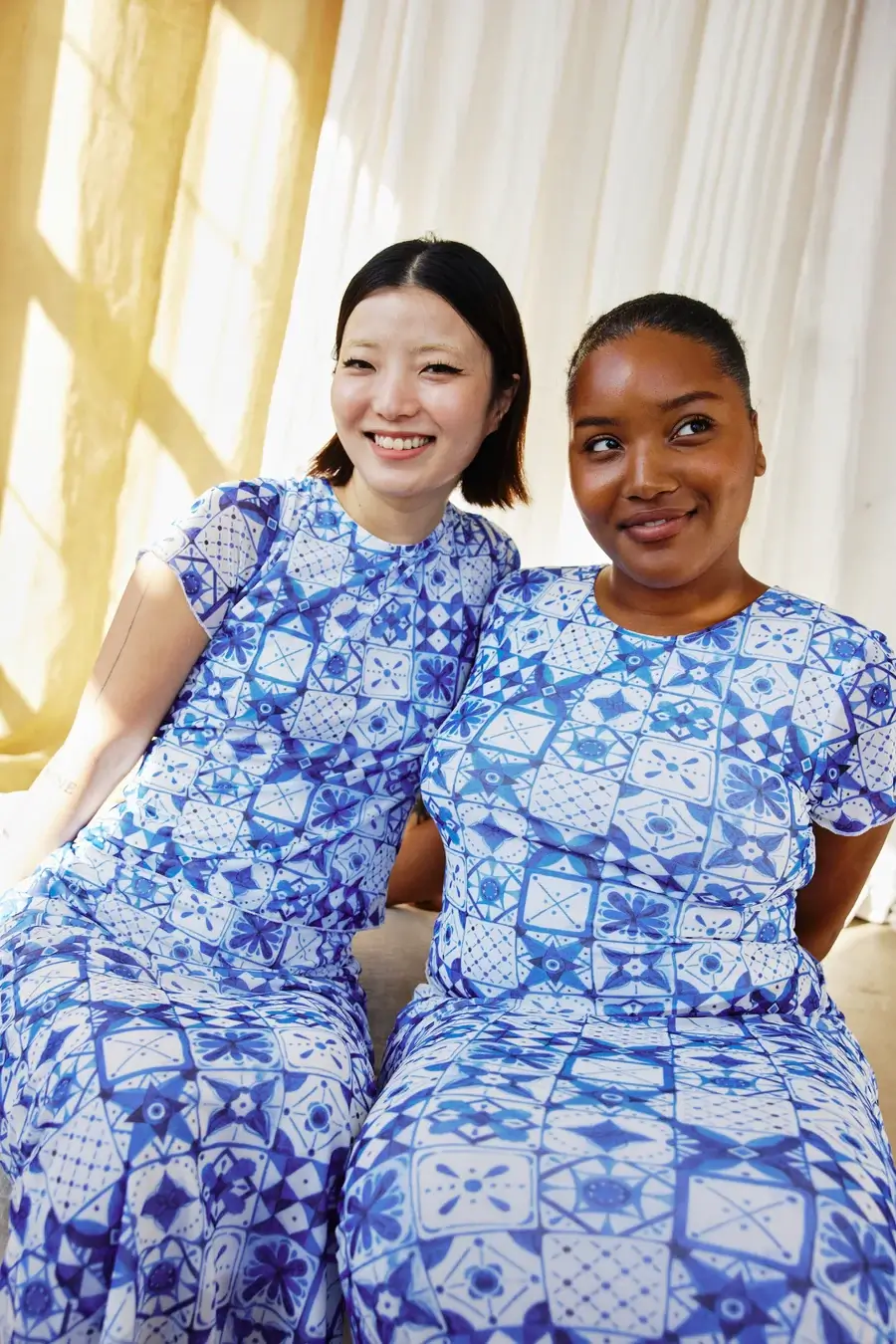
1. Tamara Malas is a small business known for fun, whimsical, and inclusive fashion made to last in limited runs. Designer Tamara created the brand for everyone who has found themselves included from fashion. They now have a flagship location in NYC!
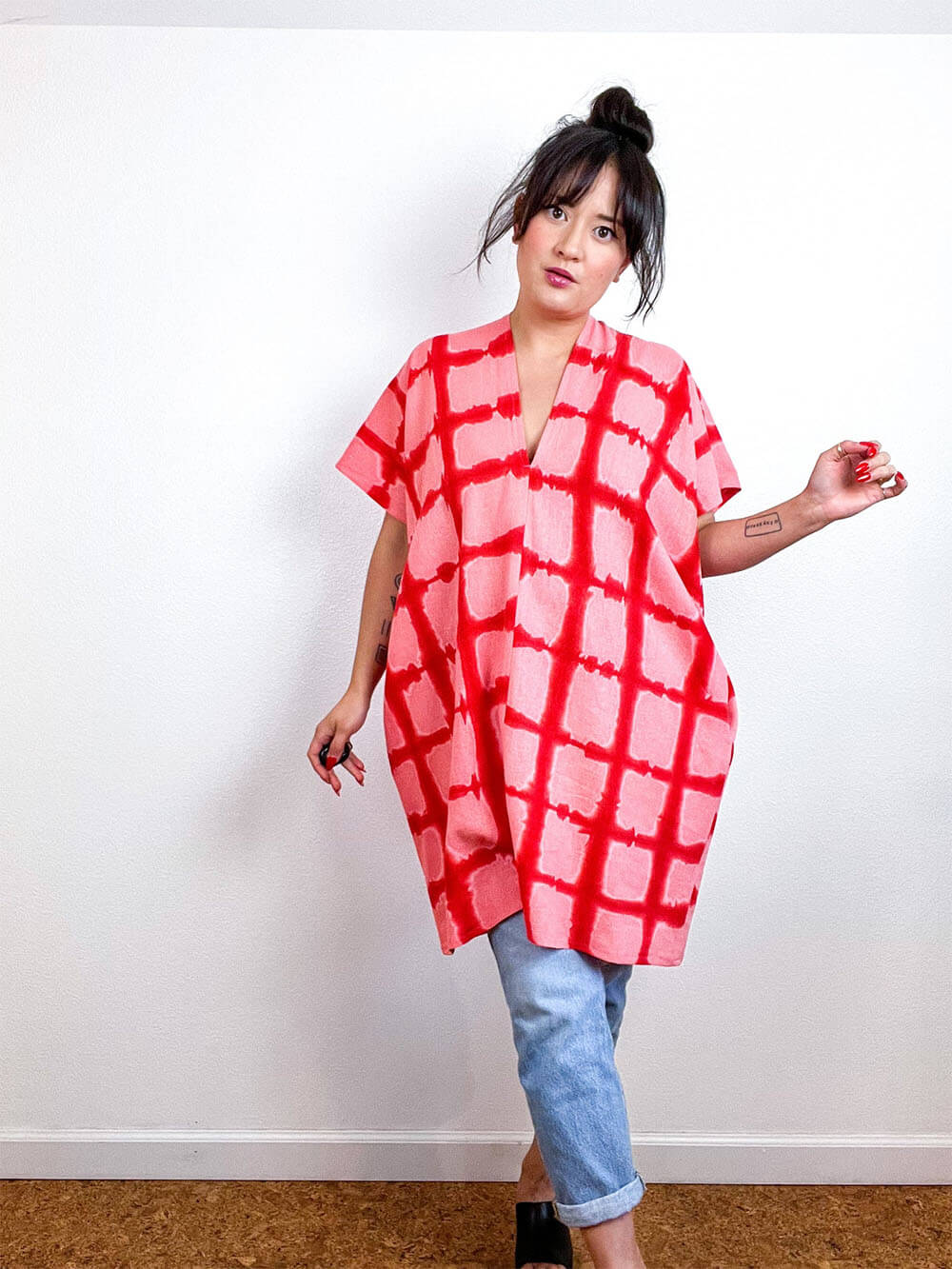
2. Tuesday offers a gorgeous selection of completely handmade and hand-dyed kimonos, dresses, scarves, and tops. They’re based in here in the Pacific Northwest and since items are one-of-a-kind, sizes vary by product.
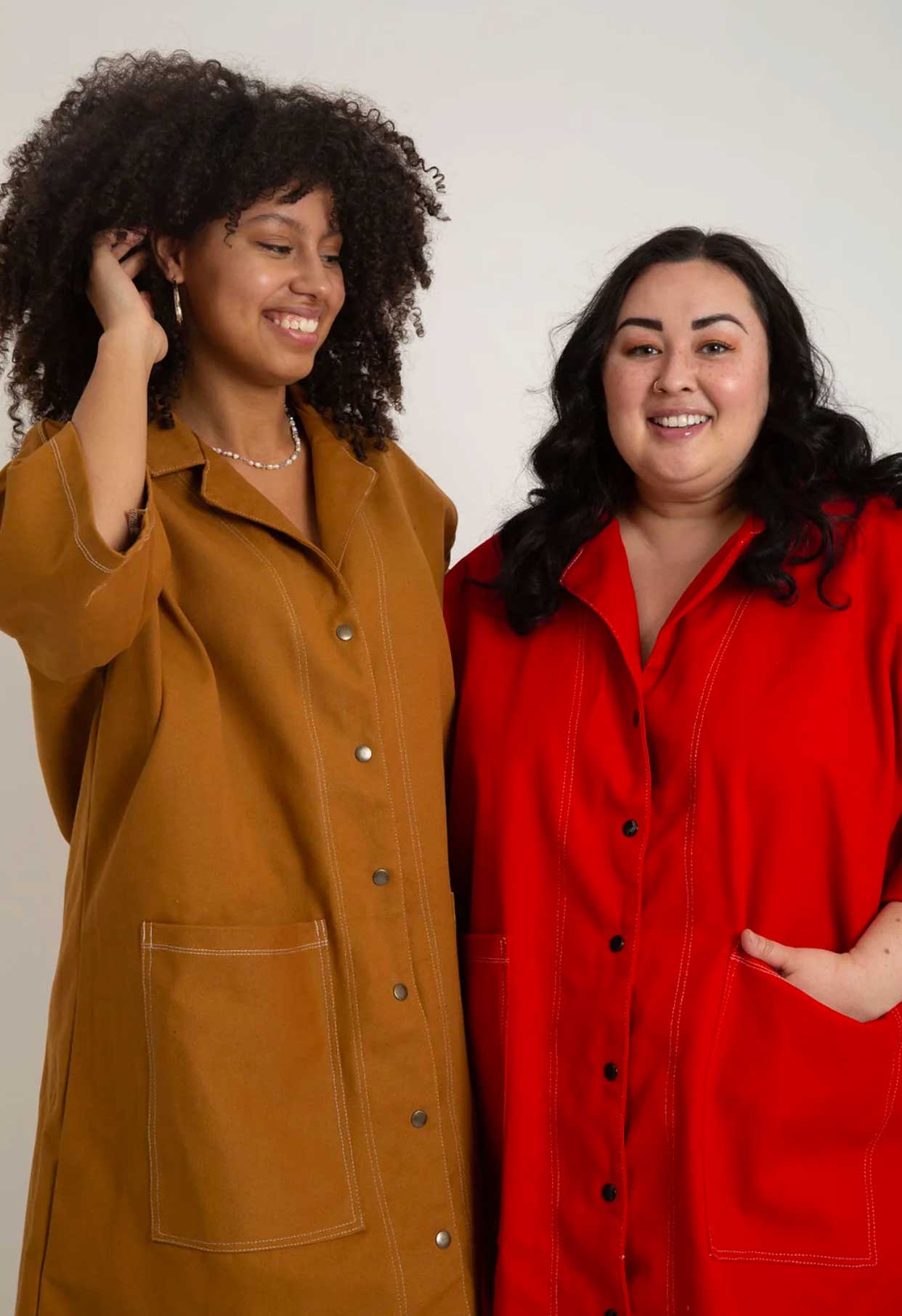
3. Oge Ajibe is a Vancouver, BC based size-inclusive slow fashion designer (XS-6X) who makes wardrobe staples by hand using natural and deadstock fabrics in beautiful vibrant colors (and neutrals too). She recently released a one of a kind collection made from special one-off fabrics you won’t find anywhere else.

4. Oh Seven Days is a slow clothing brand ethically creating clothing in Osmanbey, Istanbul from deadstock and sustainably sourced materials. They offer free worldwide shipping on orders over $150, and have recently expanded their offerings to a maternity capsule too. Sizes XS-XL. Shop all here!
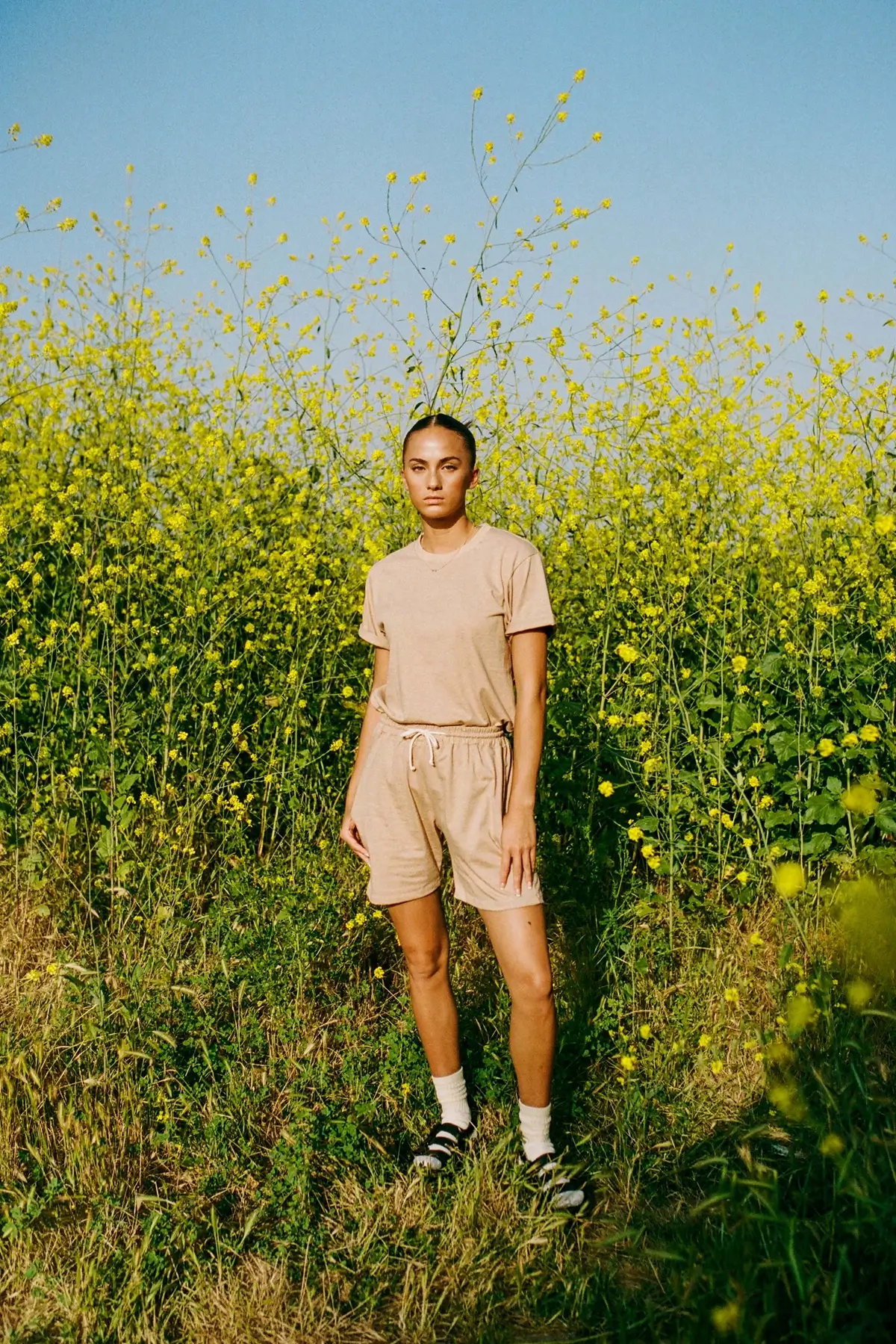
5. Harvest & Mill is grown and sewn in the USA. They work directly with organic farmers, mills, and factories to produce their mens and womens basics. Mostly unisex sizing, with XS to XL.

6. Vanhu Vamwe combines traditional craft + modern innovation to create their luxury macrame bags, sustainably woven in Africa by their artisan partners. 10% of total sales go directly to women for women initiatives. Materials like recycled para-cord (made from plastic bottles) create long lasting, luxury products.
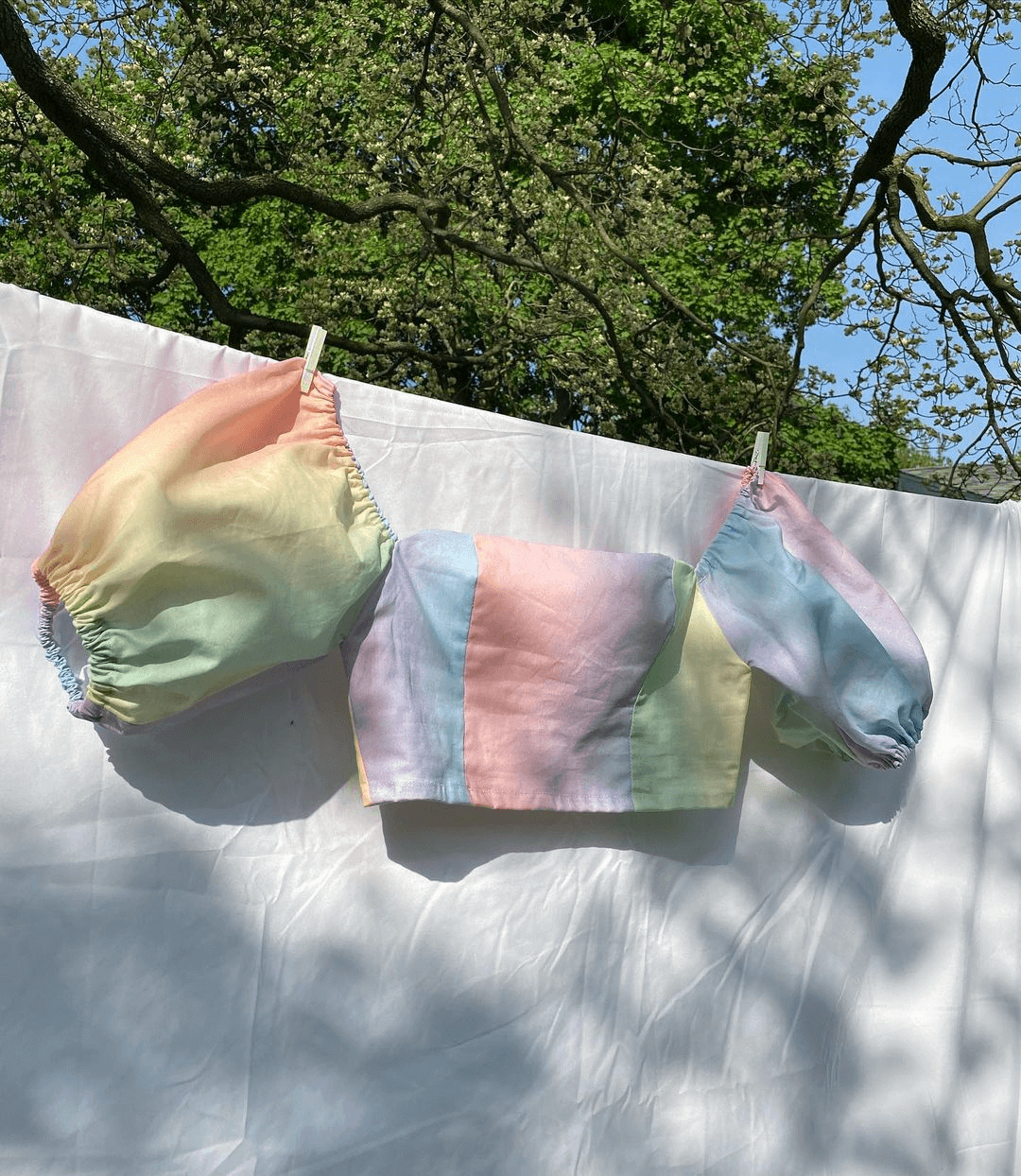
7. Isabella Eve Apparel makes custom, colorful fashion for all bodies, in Grand Rapids, MI. Everything is handcrafted to order by owner Isabella using your custom measurements.
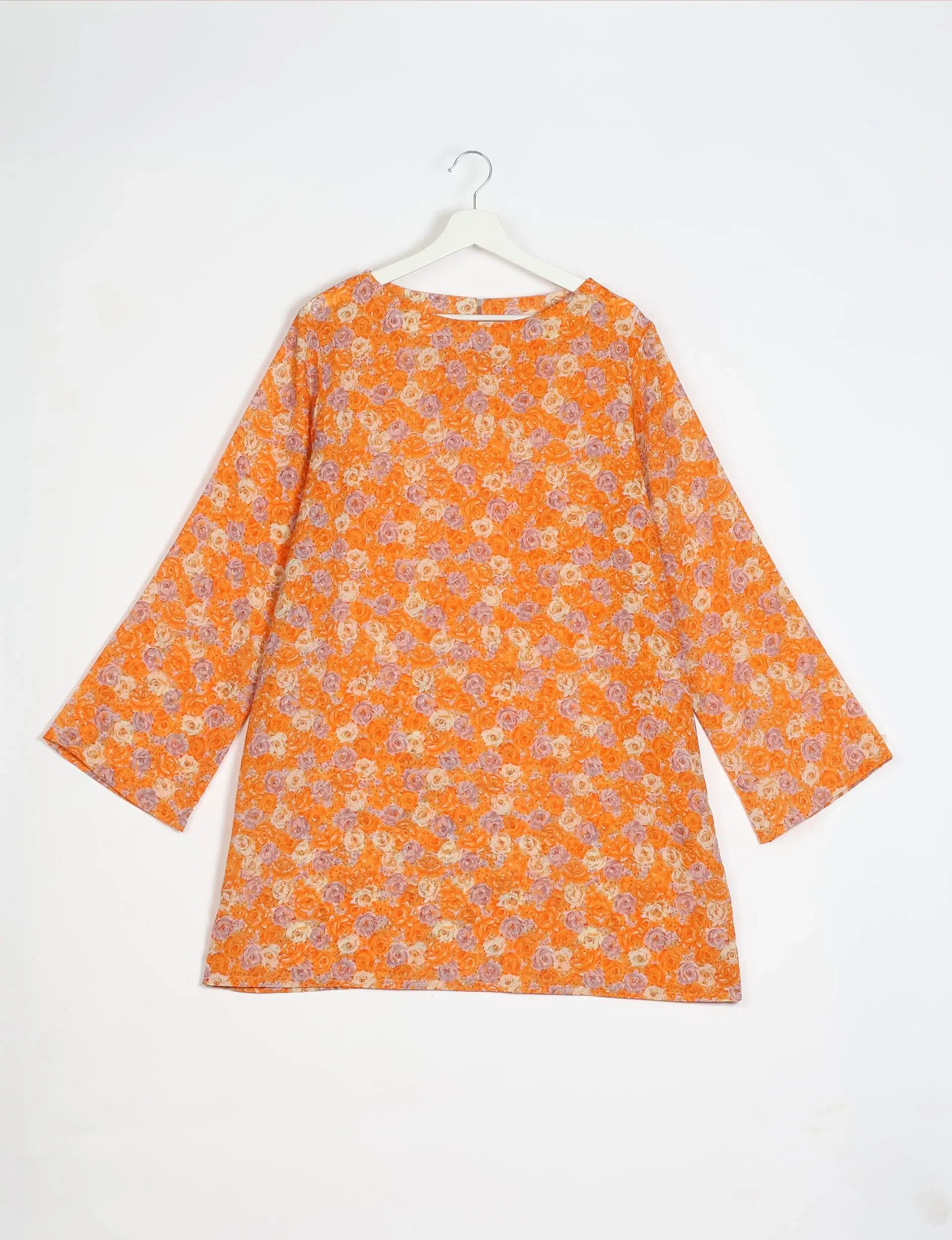
8. I was a sari is a planet-first clothing brand based in Mumbai and Milan that empowers women in India with their slow fashion model. Their clothing is zero waste, produced only with materials that already exist, and therefore are limited edition. Read: If you love something, you want to grab it–it will likely never be back! This is also a very affordable ethical fashion brand! Their swing dresses are my favorite, and it’s hard to believe they’re only $50.
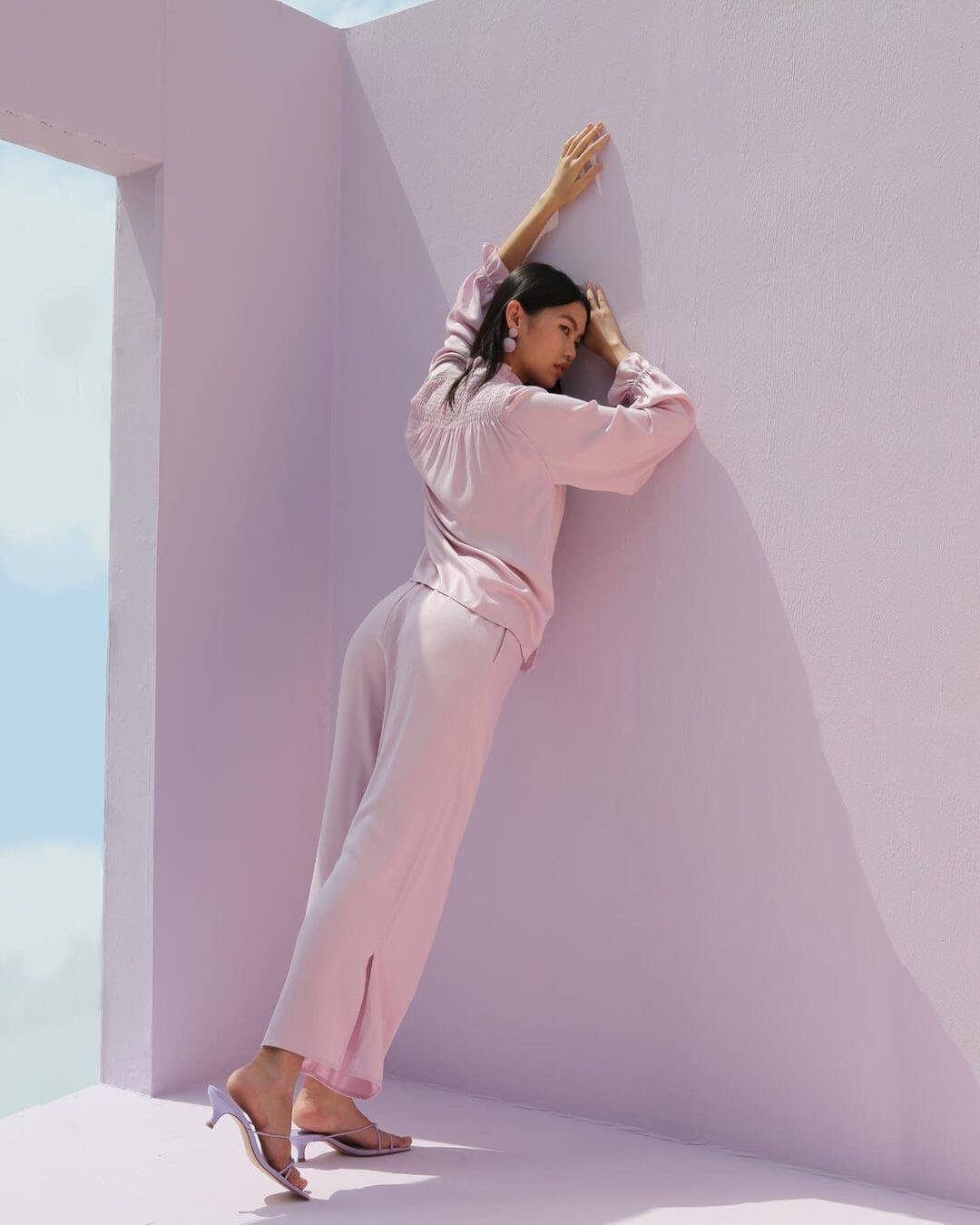
9. Half Asleep Co is the sustainable sleepwear brand behind these silky soft PJ and loungewear sets and sleep masks using 100% Tencel™ Modal Micro. They say, “From our plastic-free packaging to our synthetic-free products, we take our global footprint into account in every decision we make.”
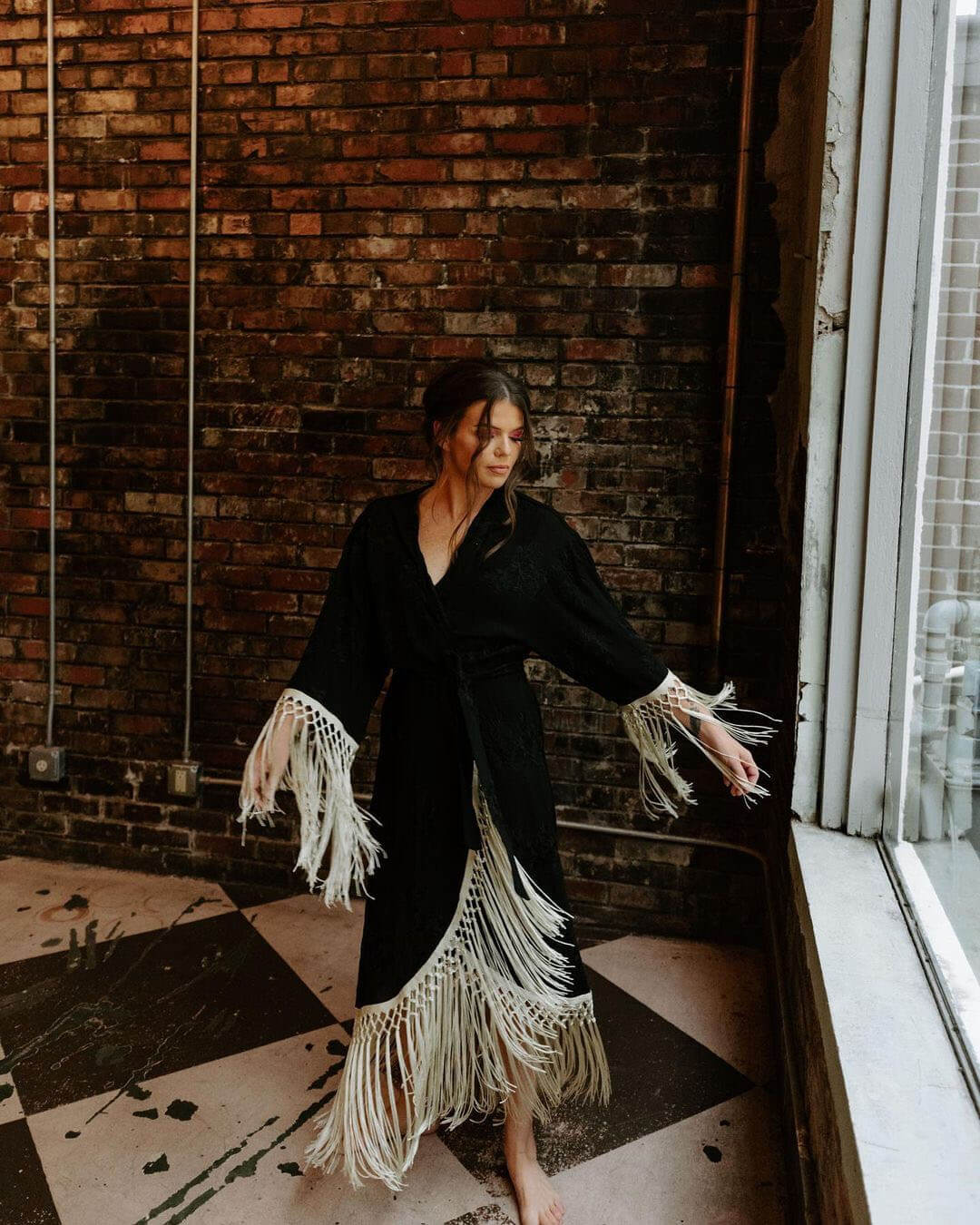
10. Camas Lilly Co specializes in upcycled bridal and bridal party robes made with beautiful deadstock fabrics, helping you have a more sustainable weddings. Customize them to your wedding palette!
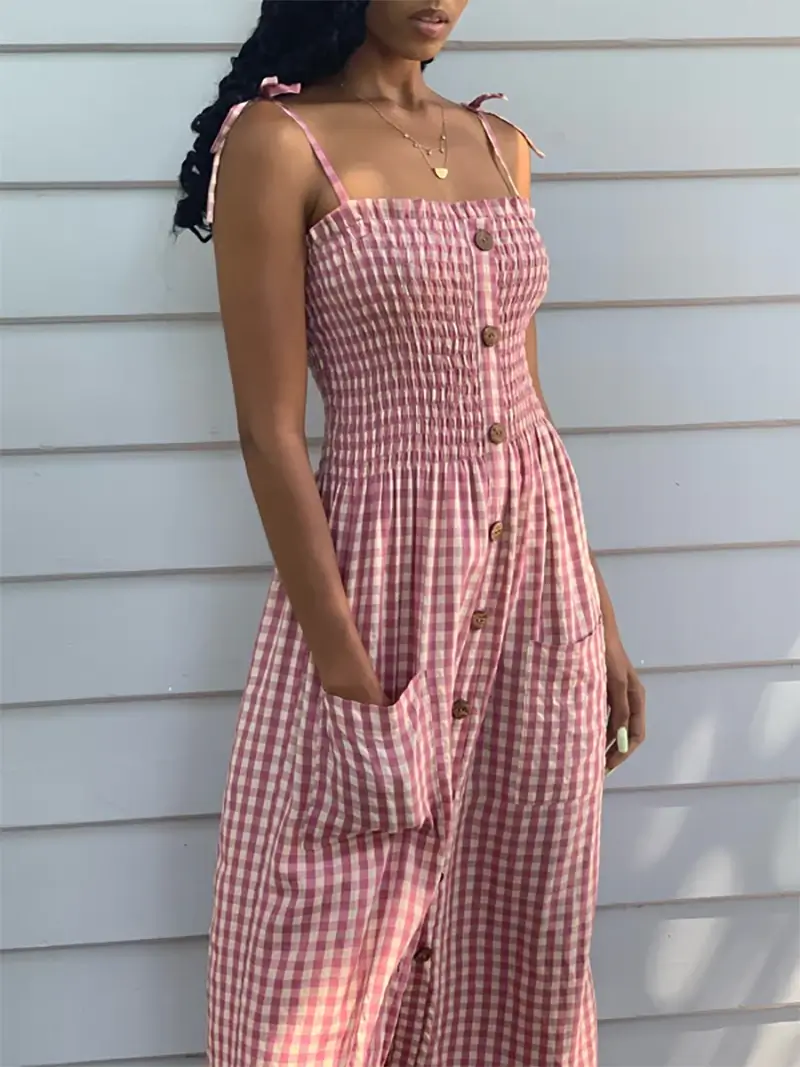
11. A certified b-corp out of Australia, All The Wild Roses offers vintage-inspired and cottagecore fashion such as smocked dresses, floral blouses, and eyelet skirts. They also offer a section for one of a kind vintage finds. If you love florals, this is the brand for you. Free worldwide shipping on orders over AUS $150!
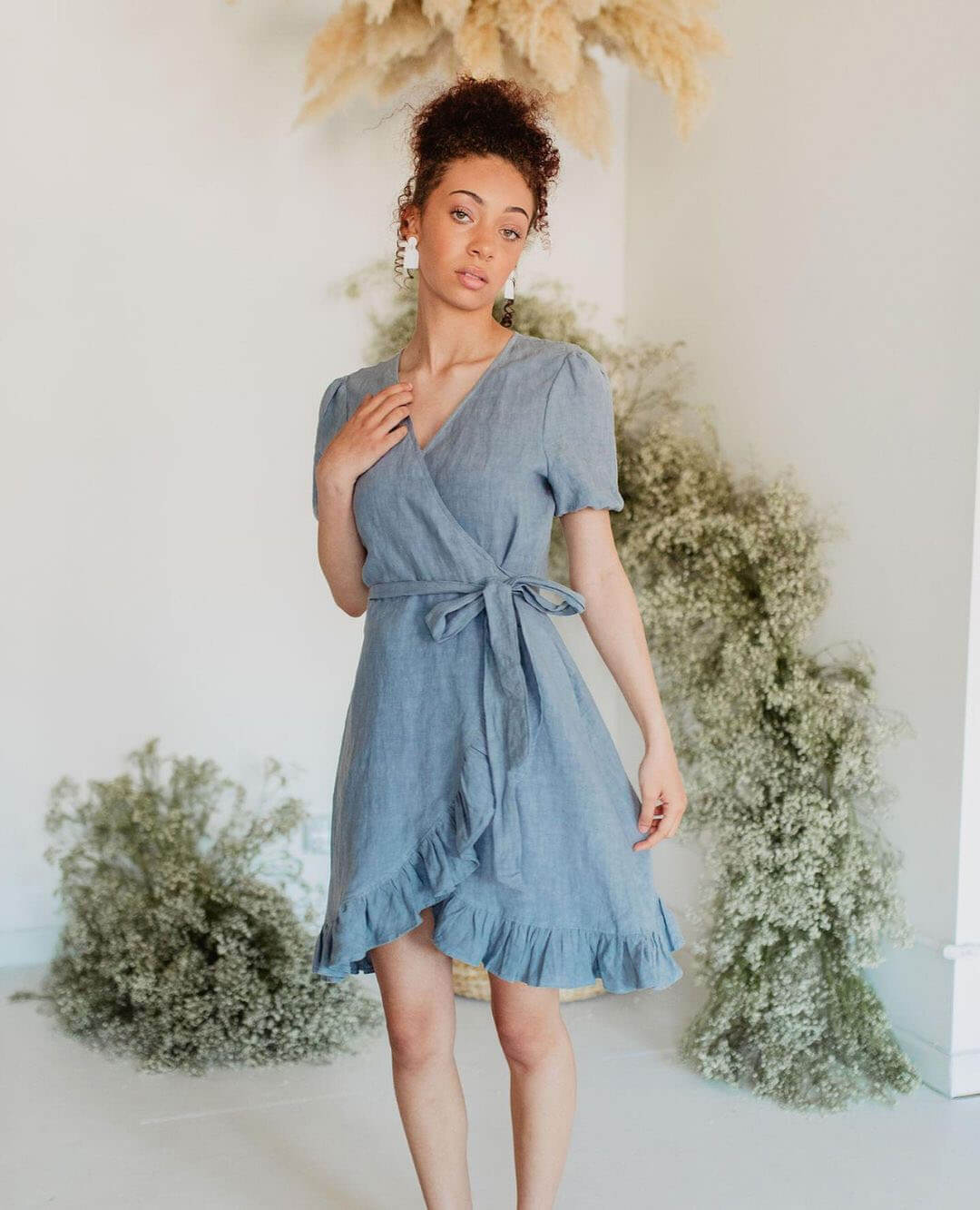
12. Lovanie is a made-to-order slow fashion brand for petite women. Based in Seattle!
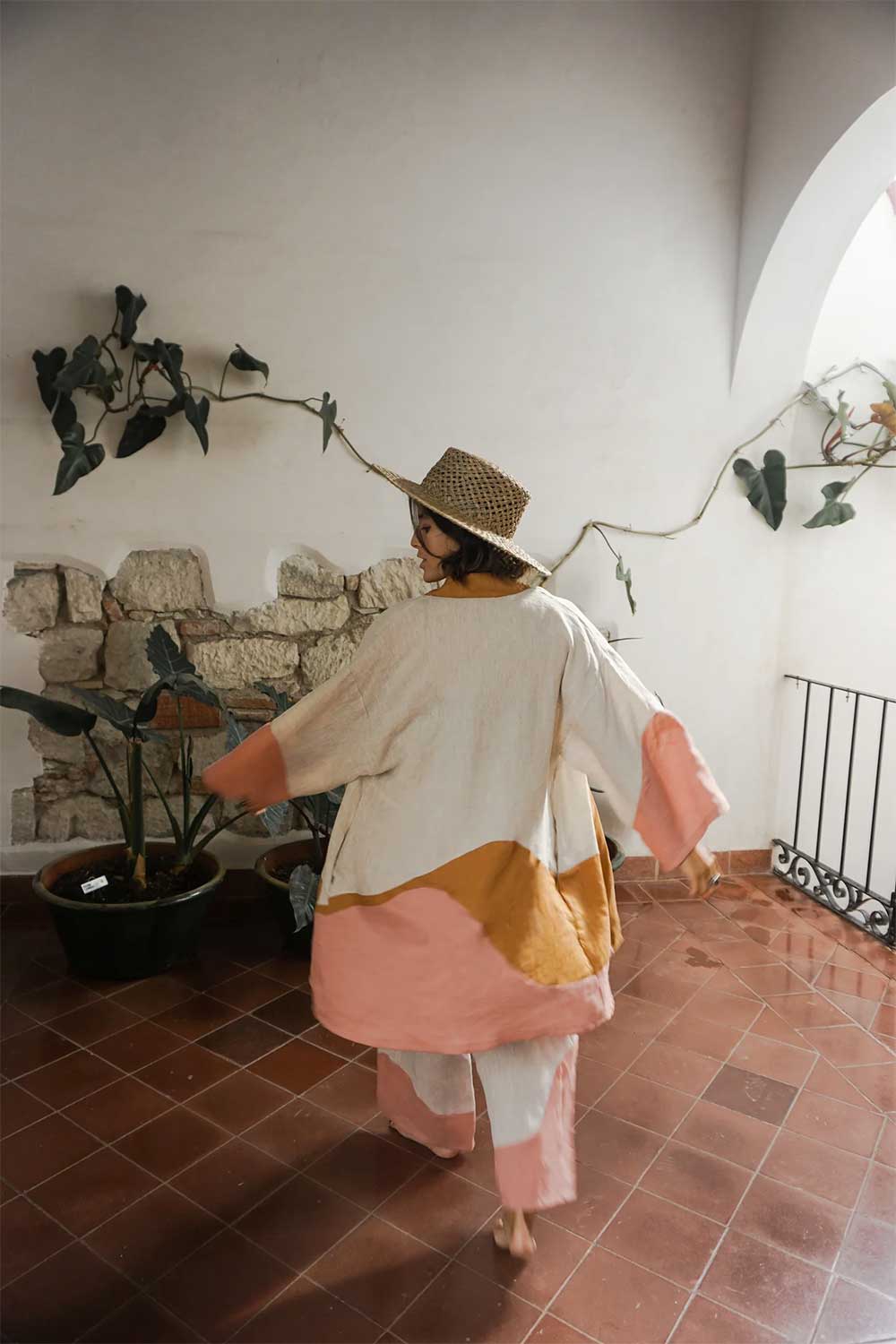
13. By KVP produces gorgeous loungewear and relaxed clothing like oversized robes and pant sets, wrap pants, and shorts from linen.
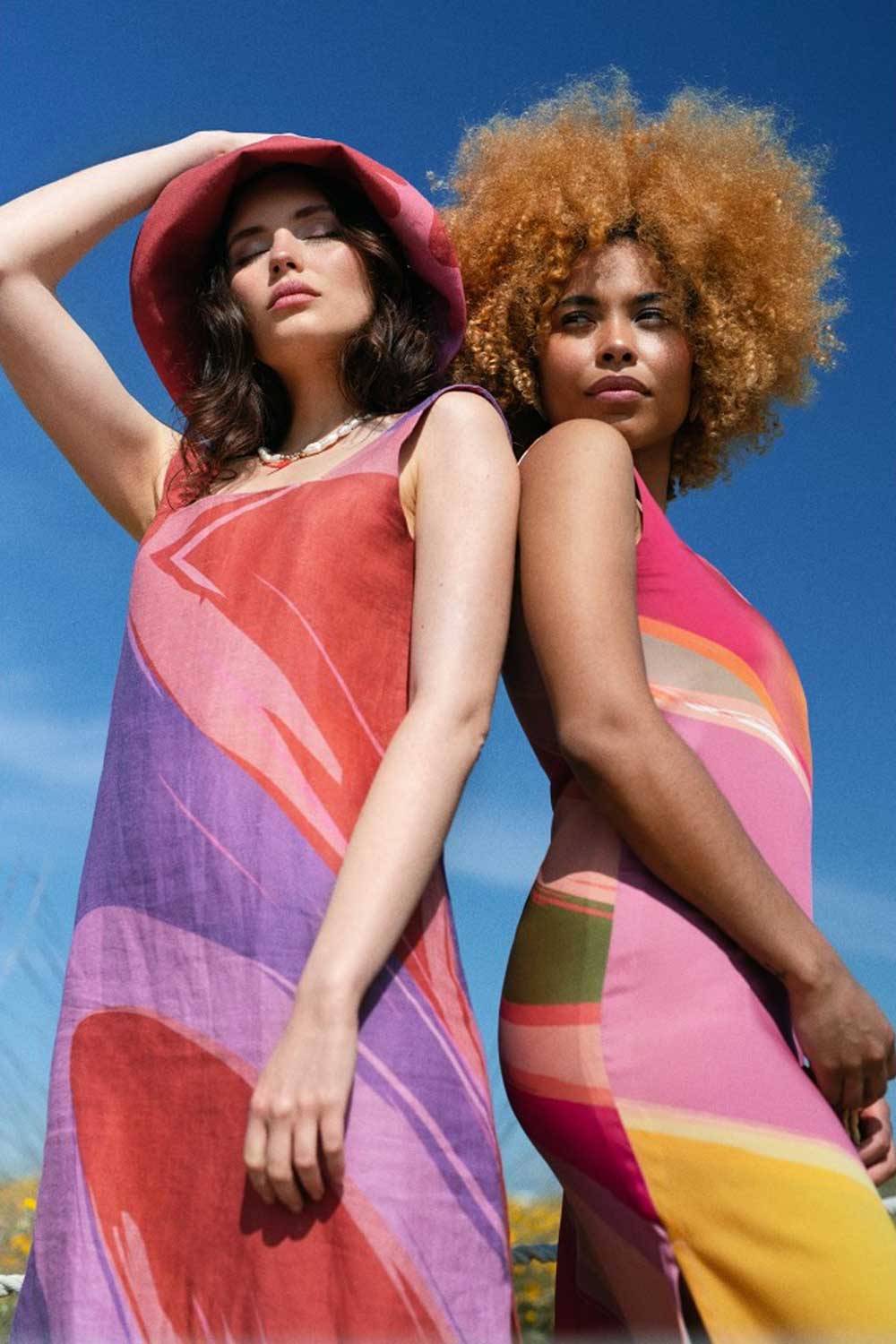
14. Gina Cusachs is a Barcelona-based sustainable fashion brand offering laidback, colorful womens clothing. They’re known for their bold, vibrant prints that adorn everything from easy dresses to bucket hats to silk scarves. I love that they offer reversible pieces, making two outfits in one!
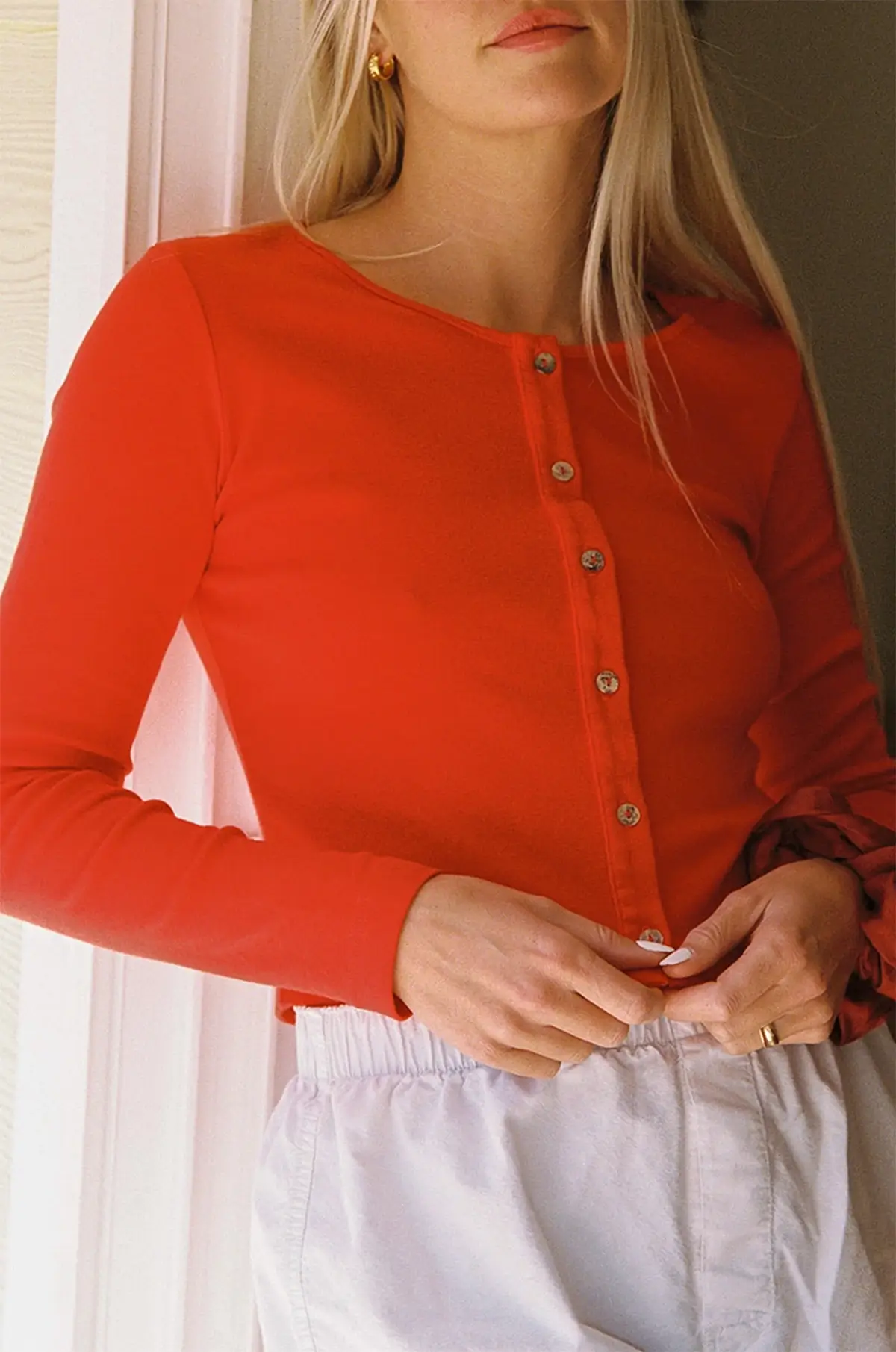
15. LA Relaxed designs and creates all of their organic clothing under one roof in Los Angeles using nontoxic dyes. Their vibe is elevated chill–think organic cotton cardis, linen pants, and oversized tees.
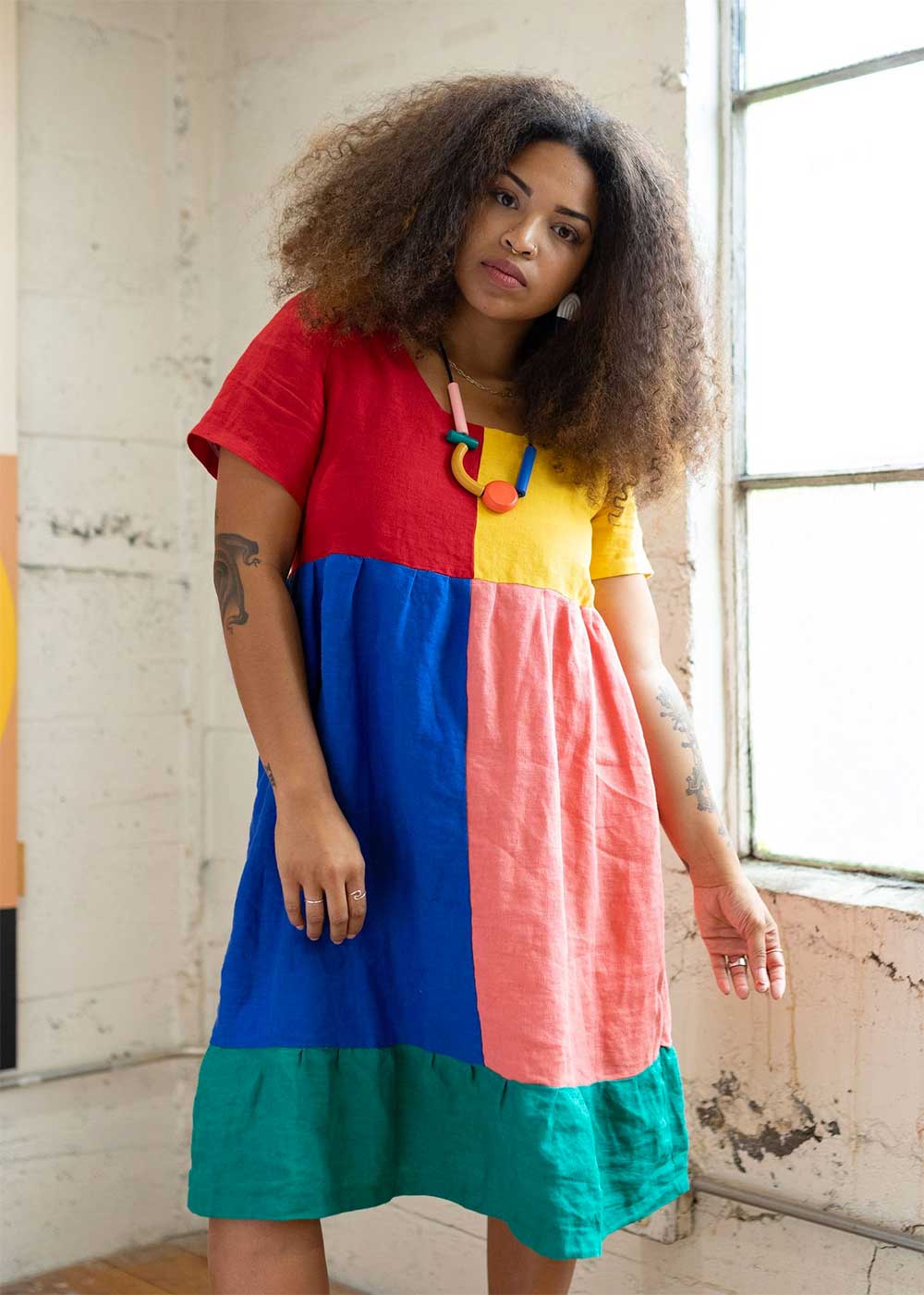
16. Based in Portland, OR, slow fashion brand Ersa Fibers is a one-woman studio that custom makes every piece to order, upcycling scrap fabric into one-off products. (Sizes XS-5x)
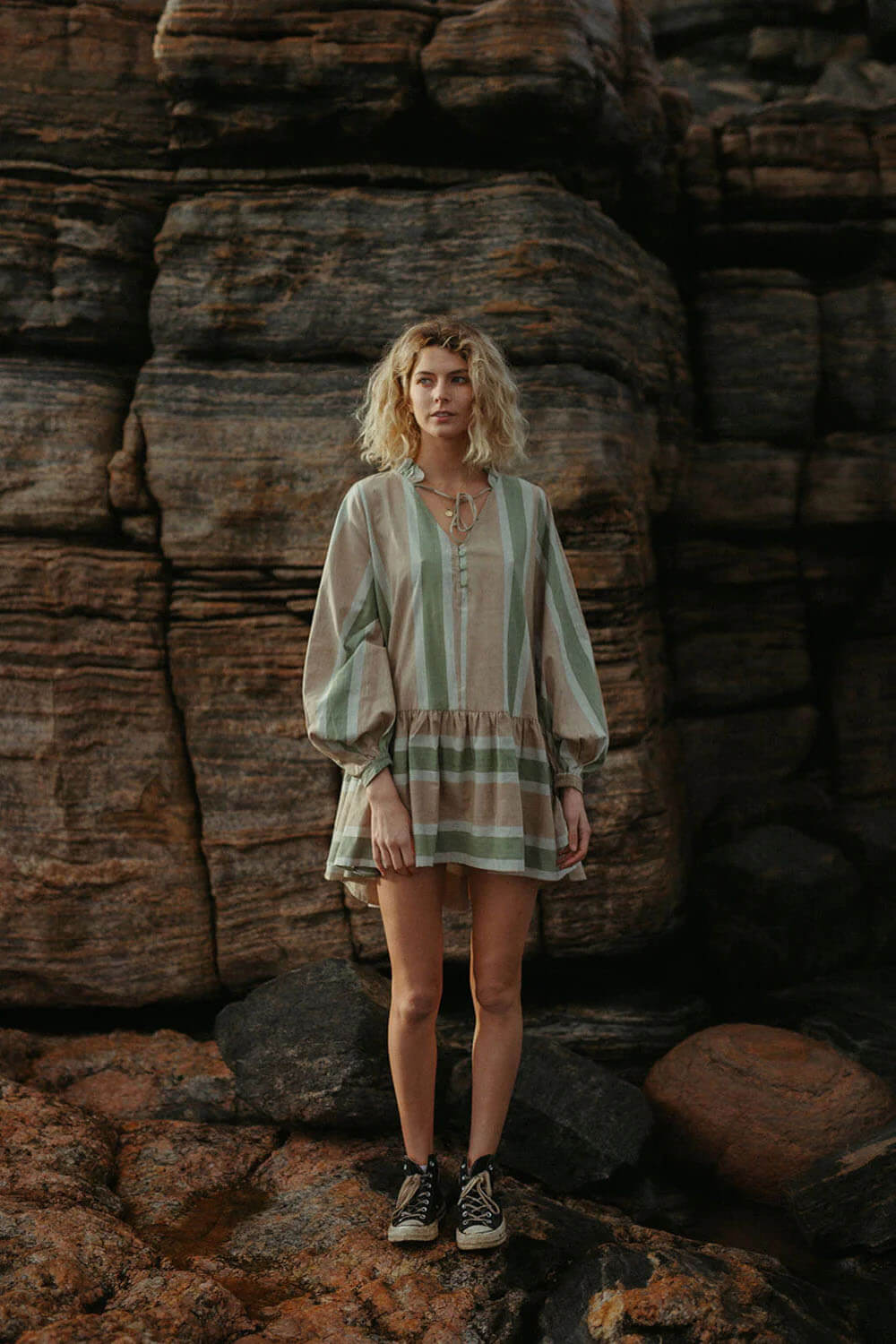
17. Another ethical fashion brand out of Australia (that ships worldwide), RŪPAHAUS handcrafts womenswear, menswear, accessories, and even decor out of beautiful natural materials. They are meant to be investment pieces that become mainstays in your wardrobe. I love the soft colorways of their handwoven cotton pieces. Most pieces are currently available up to size XL.
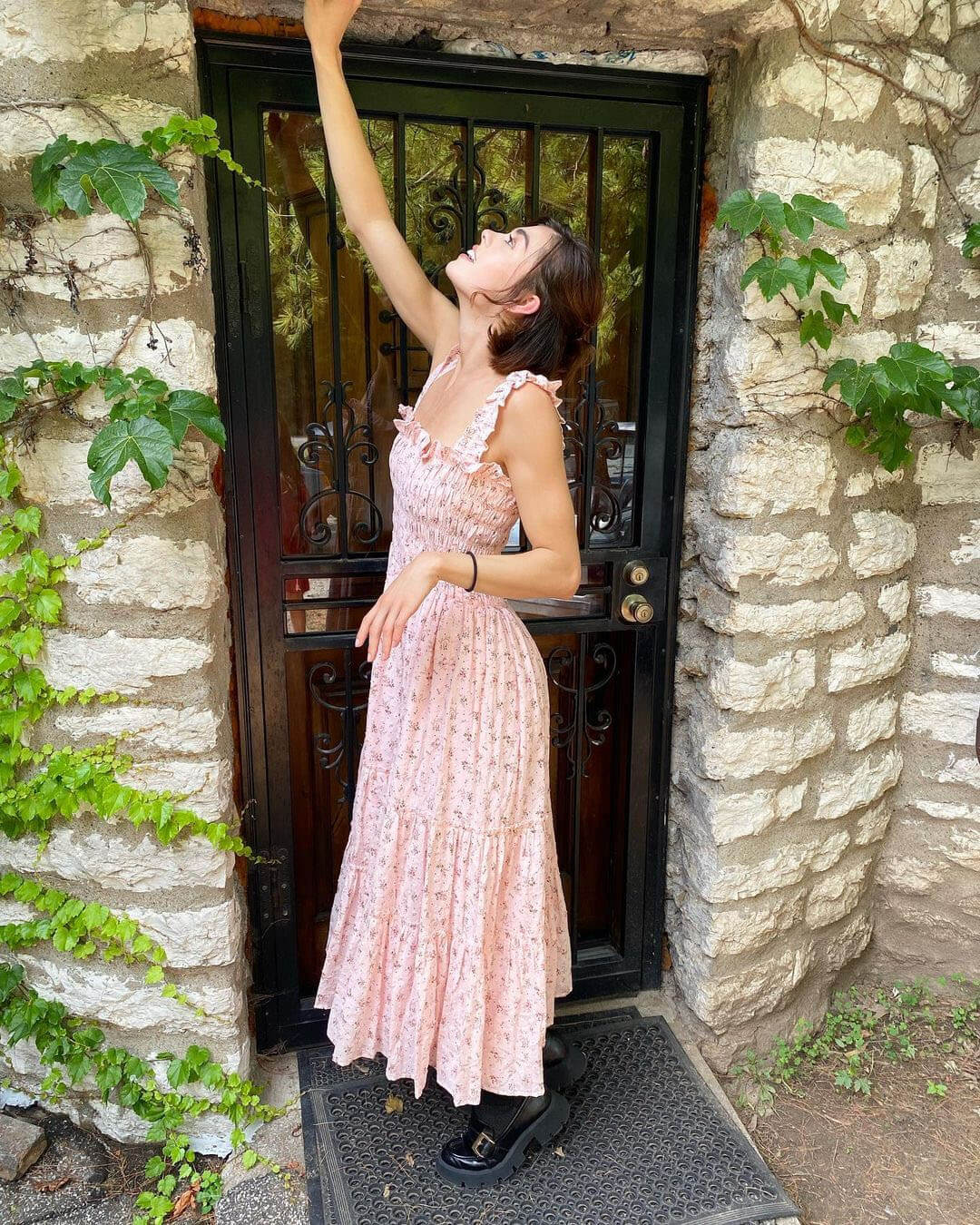
18. Dynasty George‘s sustainable cottagecore dresses are created from natural deadstock fabrics and ethically made in India. Sizes XS-XXL and mommy and me children’s dresses offered.
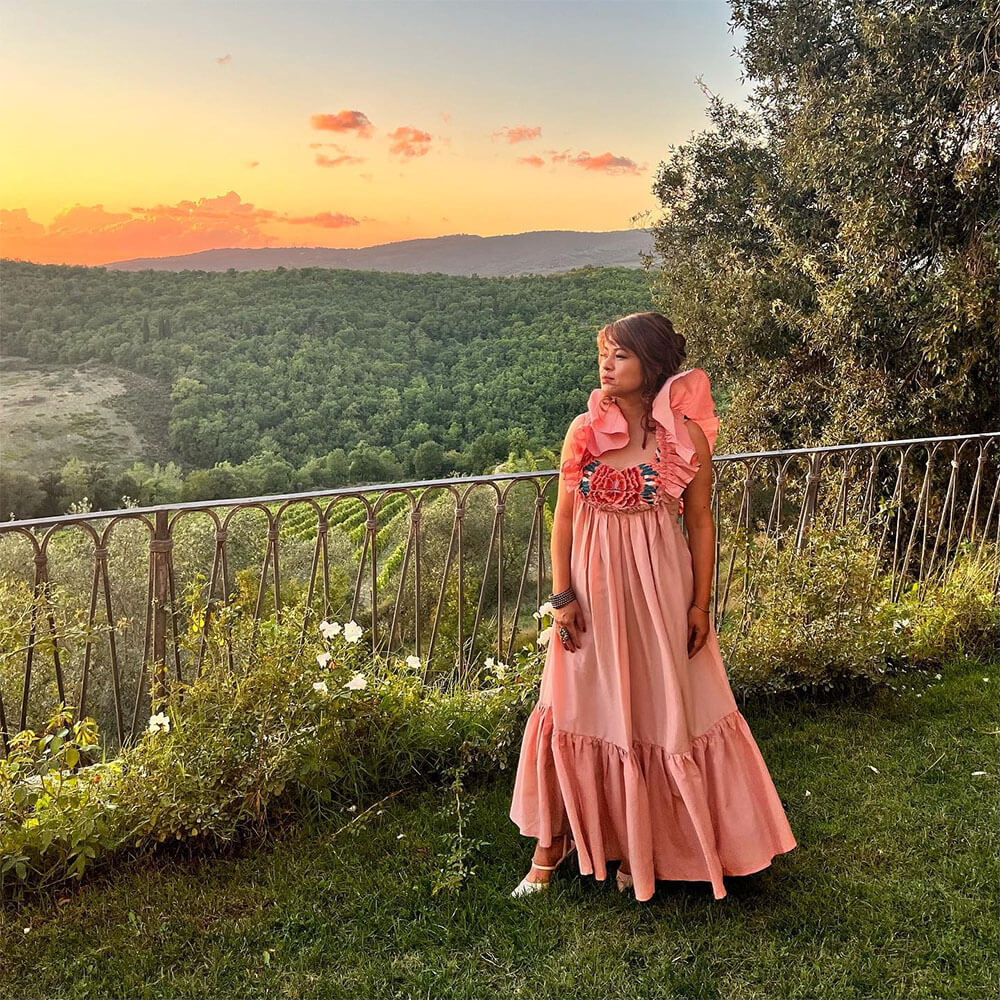
19. In a world of sustainable basics, AGAATI features special occasion womenswear as well as bespoke custom tailoring.
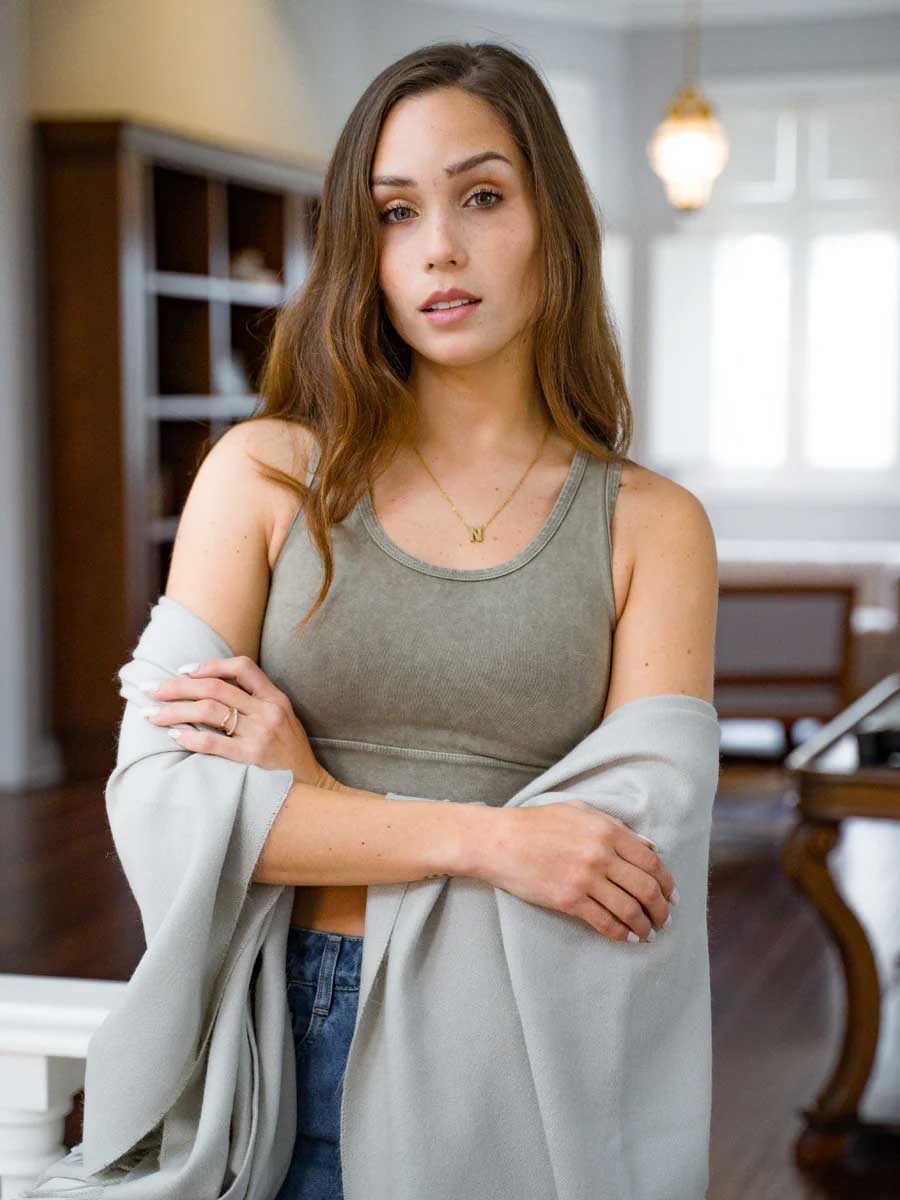
20. Jacaranda is a Calgary-based slow fashion brand specializing in sustainable active and lounge wear using organic pima cotton.
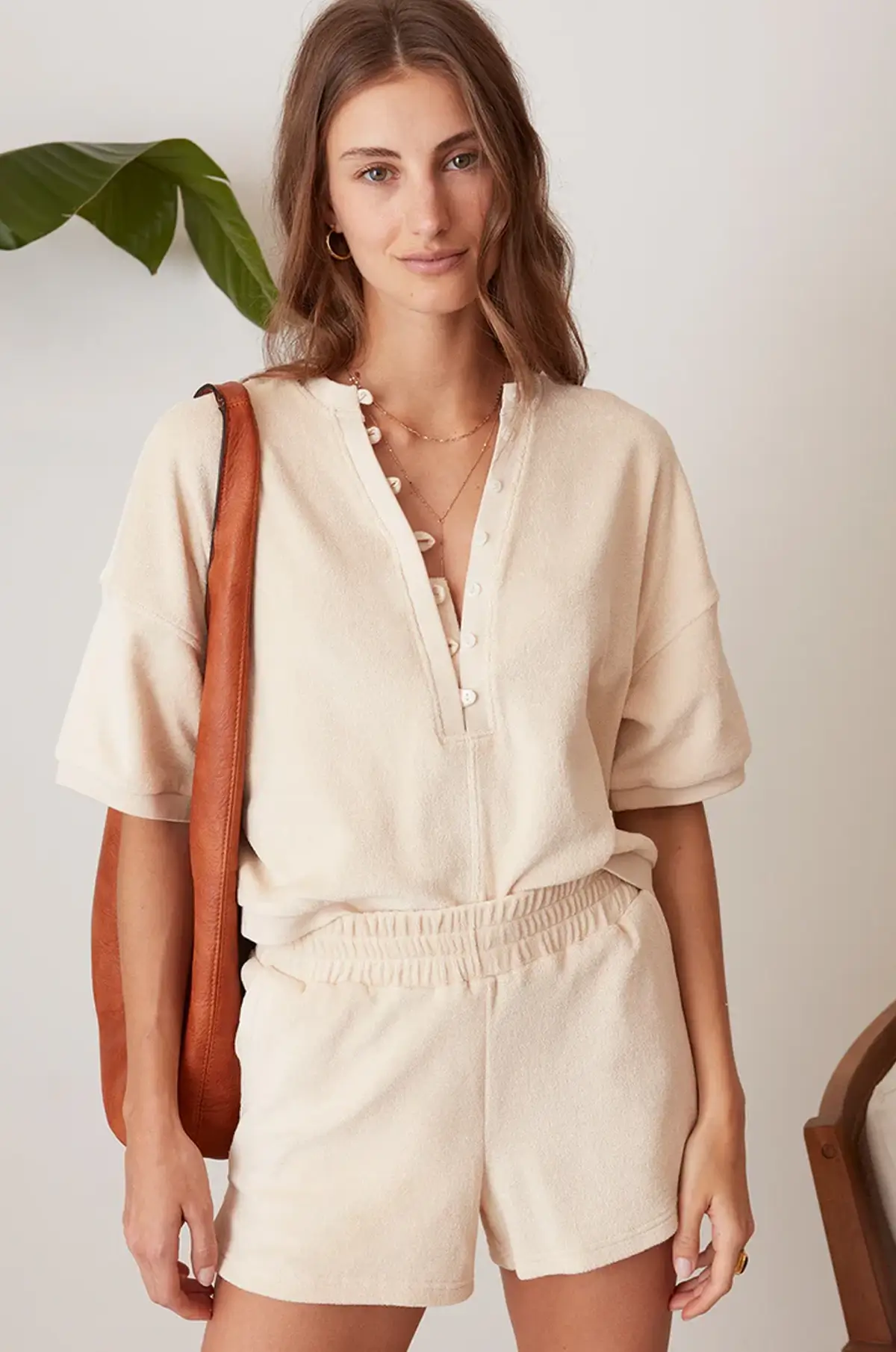
21. Grey State Apparel makes easy, versatile womenswear that’s just as cozy as it is polished. They use ethical manufacturing, traceable fabrics and mineral dyes. Factories are certified responsible by Worldwide Responsible Accredited Production (WRAP).
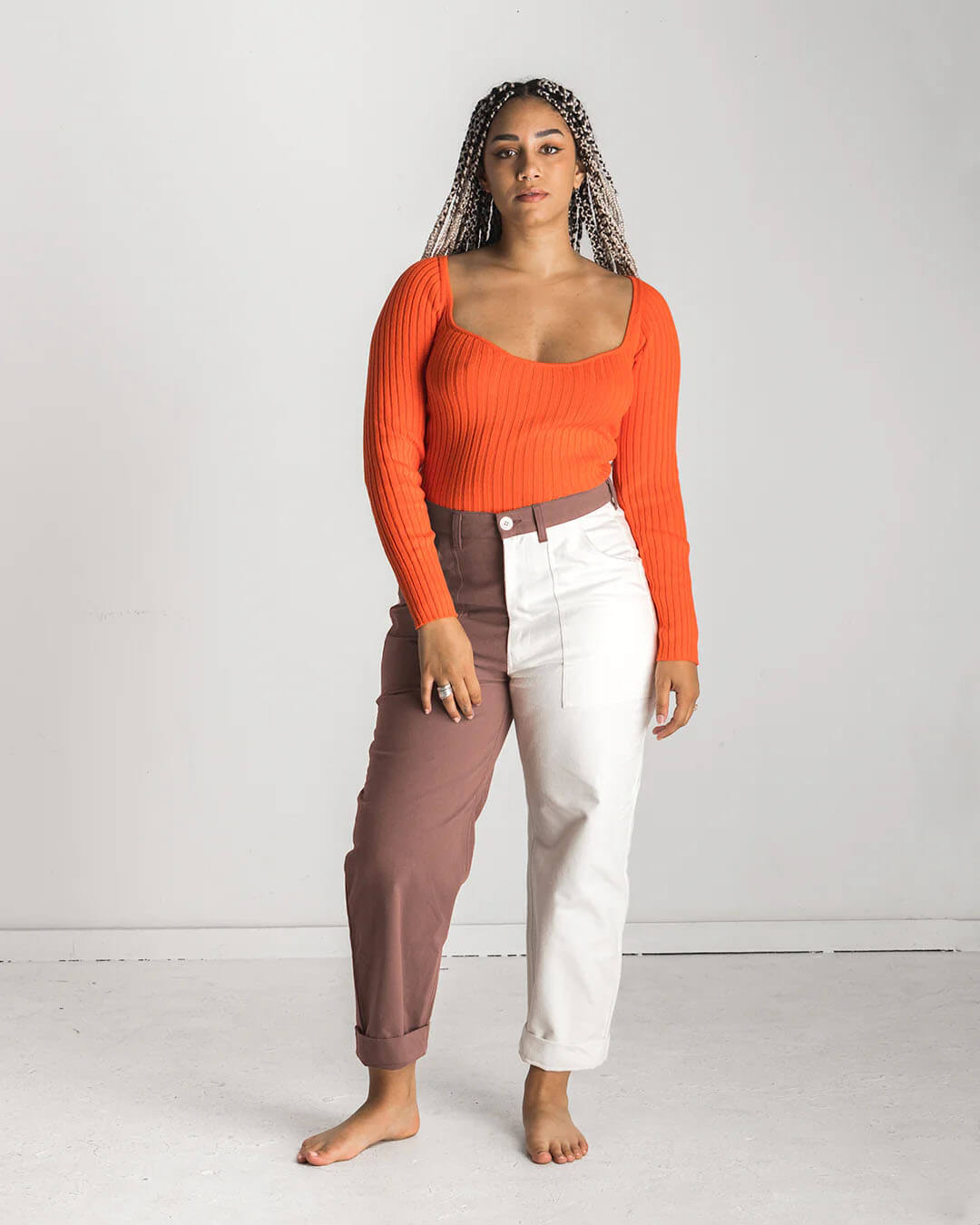
22. Women’s clothing store Soluna Collective offers a range of ethically made and handcrafted styles from cargo pants and utility jackets to bodysuits and lounge pants. Most sizes are offered up to 3X.
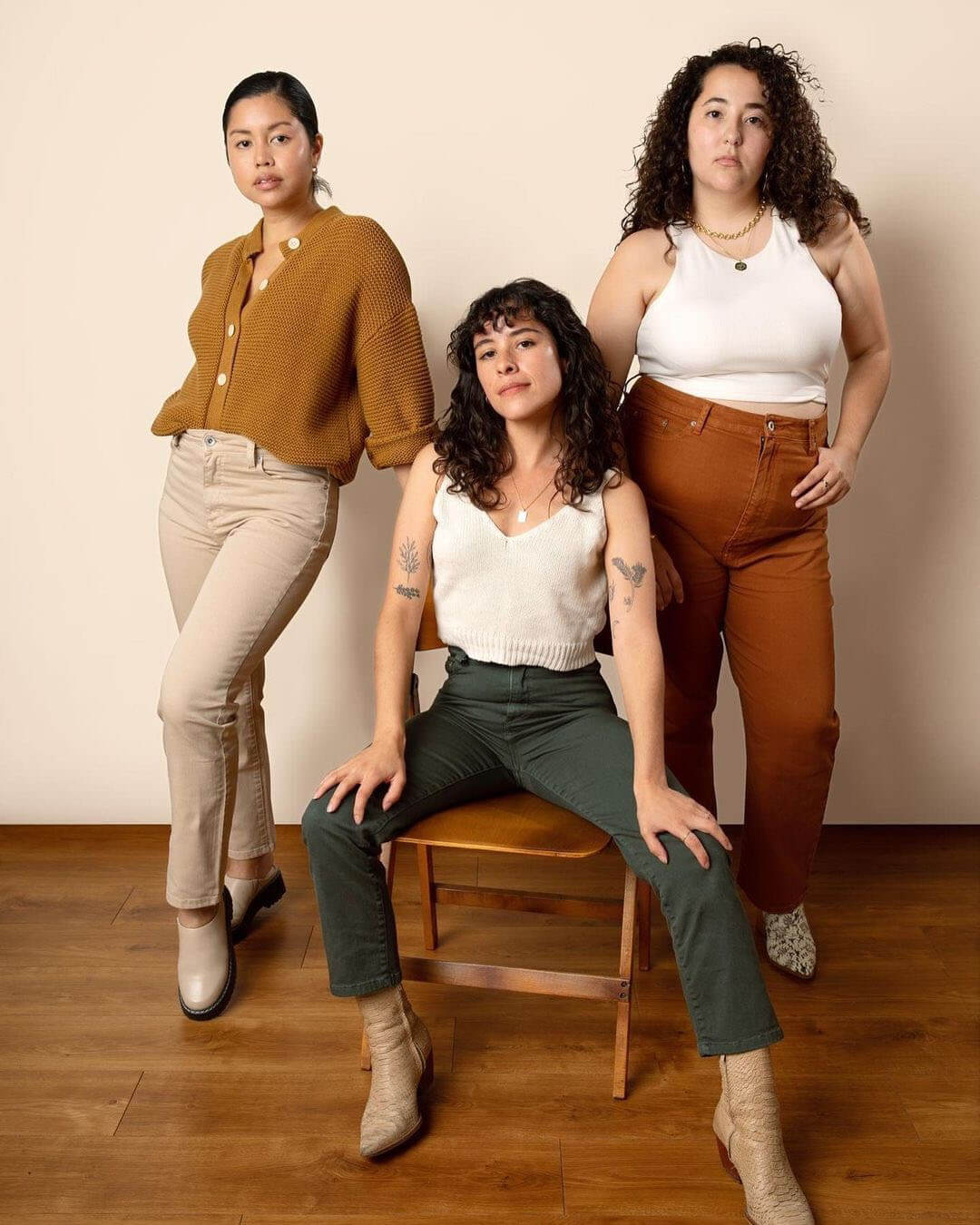
23. Neems Jeans is an amazing slow fashion brand featuring custom denim made in LA for women and men. Build your own jeans by choosing the style, rise, wash, and stretch, and even where you want them to hit (ankle, below, or above ankle). Then, you’ll upload your measurements and they’ll start on your custom order! They’re $199 which is right in the range of most quality denim brands, except that these are ethically made and totally custom! (PS I haven’t tried them myself yet, I’m just really jazzed up about this concept and hope to soon!)
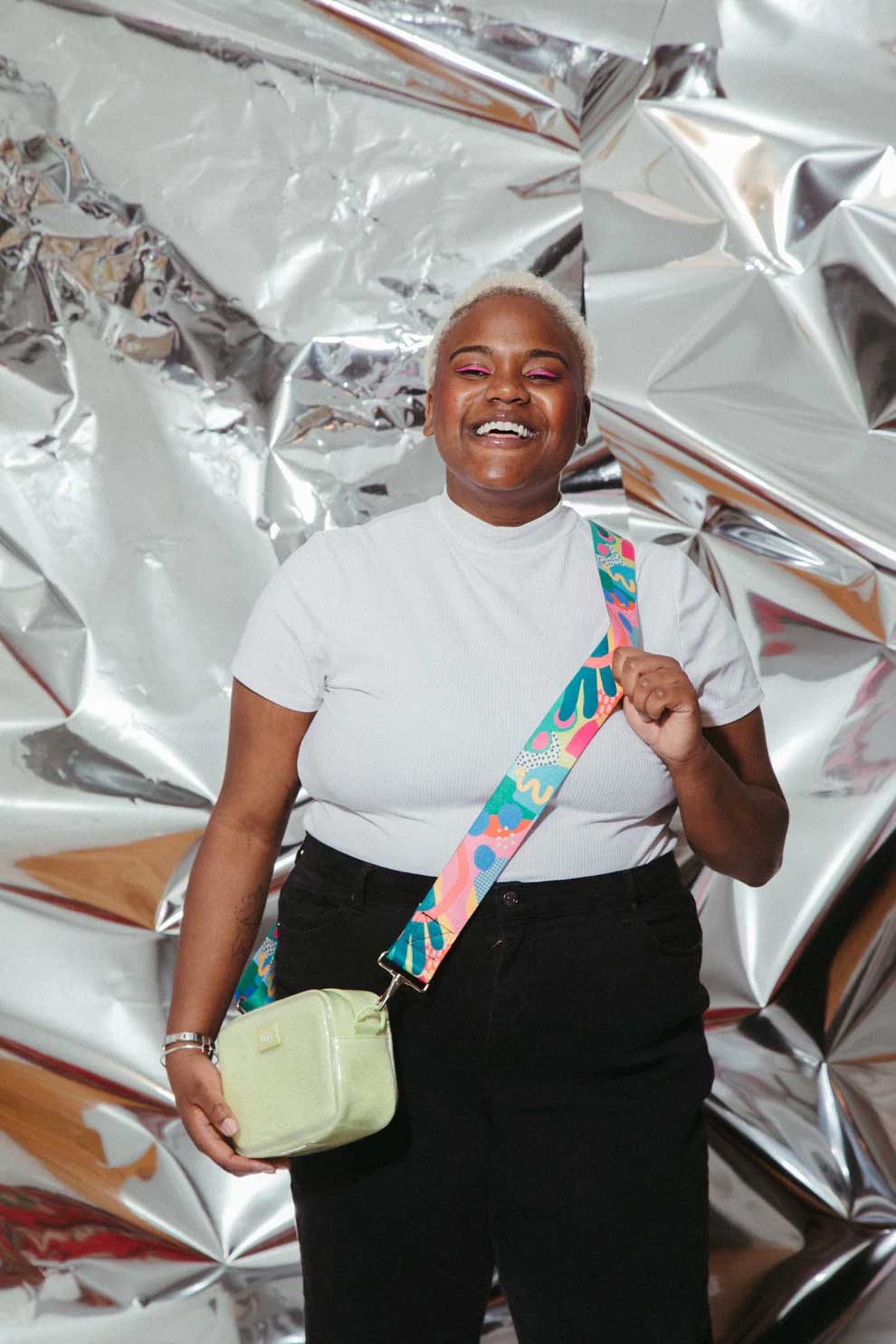
24. JOYTOAST is a playful, size inclusive brand (S-7X and beyond) made in Chicago by plus size creator Amy Lynn. They’re currently stocking mostly accessories, including adjustable bag straps that you can attach to any bag with removable straps, and wear in different ways.
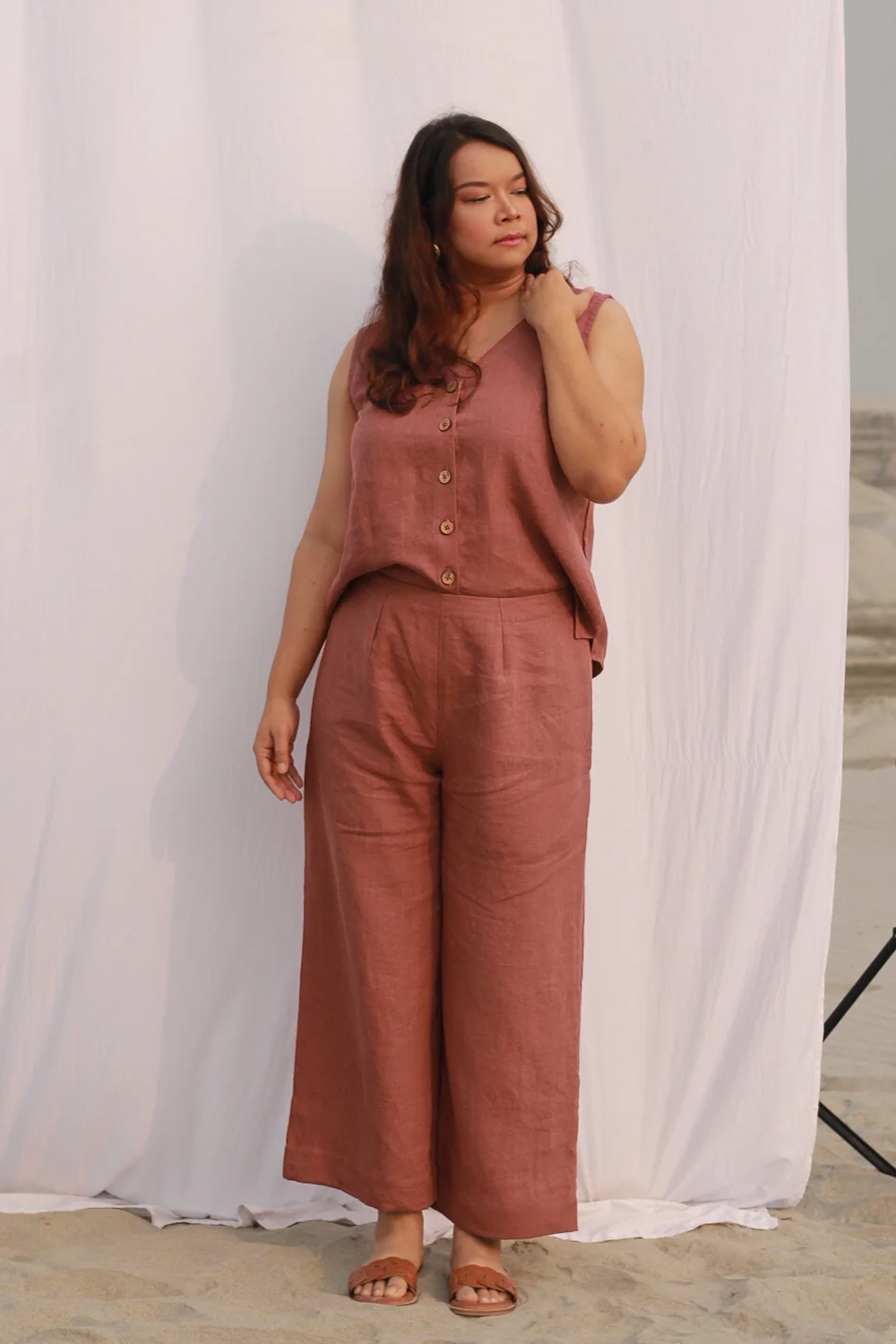
25. Lastly, Swahlee makes capsule collections that provide effortless style with natural materials like peace silk and linen as well as upcycled fabrics. Besides providing an eco-friendly alternative to fast fashion, Swahlee’s mission is to create good, safe jobs for women in Northeast India.
what’s the difference between slow fashion, ethical fashion, and sustainable fashion?
Hope you like nuance. Slow fashion (or slow clothing), ethical fashion, and sustainable fashion can all be seen as alternatives to fast fashion, but they’re not all the same. It’s good to know their differences in order to avoid greenwashing while shopping. These terms aren’t regulated in any way, so it’s up to the brands themselves whether they want to label themselves any of these:
Slow fashion refers to clothing that is made in small batches. There’s no universal definition of how small these batches are made, but it’s understood that they are not mass produced. Usually these brands feature handmade clothing produced by either a small team or a single designer. It often includes custom and made-to-order fashion, which you see a lot of above! Because of this, slow fashion is not always ready-to-ship and can take days or weeks for it to make it from the maker to the consumer.
Whether or not a slow fashion brand should also be considered sustainable is often up to the consumer. For example, most of the brands on this list upcycle vintage or deadstock textiles, use natural fibers, or opt for organic over conventional cotton. But does that mean if a designer uses virgin fabric or a synthetic material that they’re not sustainable? That’s up to you. Generally speaking it’s still more sustainable than a fast fashion brand, but it may not be totally up to your standards if you prefer to avoid certain materials.
Similarly ethical and sustainable fashion often includes slow made clothing, but it doesn’t necessarily have to. A sustainable and ethical fashion brand, such as Eileen Fisher, for example, may operate on a much larger scale and therefore not fall into the “slow” category.
What is sustainable fashion? Sustainable fashion is usually used to describe the materials or process, or environment. Questions to ask: What is this made of? Are the inks and dyes used harmful to people or the environment? Does the factory the clothing is made in adhere to environmental standards? What waste do they produce?
Ethical fashion defines the social aspect, most often referring to the people who made the clothing. Questions like who made this? What are their working conditions like? Are they paid fairly? are asked.
This is where I’ve seen some greenwashing come in. It’s easy to assume that because a company brands themselves as sustainable that their clothing is also ethically produced, and vice versa. Early on in my blogging journey I was often approached by ethical clothing companies that put pretty much zero consideration toward the environment in their practices. While no one is requiring that an ethical brand be transparent about their sustainability practices, I can see why consumers might assume if a company checks one box, it automatically checks both. So be sure to ask all the questions, if all of these factors are important to you!
On eco club we use sustainable and ethical fashion pretty much interchangeably — we rarely report on any brand that doesn’t check both boxes. That said, we also consider that small businesses often have to work up to certain sustainability standards as more resources become available (ie organic and fair trade certifications can be costly) so, it totally depends. Nobody is perfect, but we try our best to break through the noise.
I hope this guide helped you! Please add any slow clothing brands you’d love to see added, in the comments!
Amazing, thanks for putting together this great selection!
Thank you so much for checking it out!